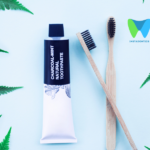Dental health is a crucial aspect of our overall well-being. Unfortunately, many of us overlook the tiny grooves and pits in our back teeth where food particles and bacteria often hide. This is where dental sealants come into play. They provide an essential layer of protection, preventing decay and promoting oral health. In this guide, we’ll explore what dental sealants are, their benefits, who should get them, and much more. Let’s dive in!
What Are Dental Sealants?
Dental sealants are thin, plastic coatings applied to the chewing surfaces of the back teeth, particularly the molars and premolars, to prevent cavities. The protective barrier formed by the sealant shields the enamel from plaque and acids.
How Are Sealants Applied?
Applying sealants is a straightforward and painless procedure. Here is a brief overview of the steps involved:
- Cleaning the Tooth: The dentist will thoroughly clean the tooth to remove any plaque or food particles.
- Preparation: An acidic solution is applied to the chewing surface of the tooth to roughen it up, allowing the sealant to bond better.
- Rinsing and Drying: The tooth is then rinsed and dried to ensure optimal adhesion.
- Application: The sealant is painted directly onto the tooth enamel, where it bonds and hardens.
- Curing: A special curing light may be used to speed up the hardening process.
What are Dental Sealants made of?
Dental sealants are primarily made from materials designed for durability and biocompatibility. These materials can be broadly categorized as resin-based sealants and glass ionomer sealants.
- Resin-Based Sealants: These are the most common type of sealants and are usually composed of a plastic material that hardens to form a protective coating over the teeth. These resins can be plant-based or synthetic[1].
- Glass Ionomer Sealants: This type of sealant is made from a combination of glass powder and a water-soluble polymer. When applied, these materials undergo an acid-base reaction that helps them adhere to the tooth surface[1].
Both types of materials are designed to be biocompatible, meaning they do not cause harm or adverse reactions when in contact with oral tissues[2]. Some concerns have been raised about materials like Bisphenol-A (BPA), but the safety profile of sealants has been extensively studied and they are considered safe for use[3].
Cleveland Clinic | American Dental Association | Dental Health Society
The Importance of Sealants for Preventing Cavities
Cavities, or dental caries, are the most common chronic disease among children and adolescents. Dental sealants act as a barrier, protecting vulnerable areas from plaque and acids, thus drastically reducing the risk of cavities.
Benefits of Dental Sealants
The benefits cannot be overstated:
- Prevention of Cavities: Sealants can prevent 80% of cavities in molars.
- Durability: With proper care, sealants can last up to 10 years.
- Cost-Effective: Preventive care is often less expensive than restorative care.
- Quick and Painless: The procedure is non-invasive and can be done in a single dental visit.
Who Should Get Sealants?
The application of dental sealants is beneficial for various age groups, including:
- Children and Teenagers: Sealants are most effective when applied to permanent molars soon after they come in, around ages 6 and 12.
- Adults with No Decay: Adults without decay or fillings in their molars can also benefit from sealants.
- High-Risk Individuals: Individuals prone to cavities due to factors like poor oral hygiene or a history of dental decay can greatly benefit.
For Children
Children are particularly prone to cavities for several reasons, including poor brushing techniques and diets high in sugars. Dental sealants offer a proactive way to protect their vulnerable teeth during their formative years.
For Adults
While less common, adults can certainly benefit from sealants too. Particularly, those who have deep grooves and pits in their back teeth can reduce their risk of decay by getting sealants.
Types of Dental Sealants
There are different types of dental sealants available, including:
- Resin-Based Sealants: These are the most common type and provide a strong, durable barrier.
- Glass Ionomer Sealants: These release fluoride, providing additional protection against cavities.
- Polyacid-Modified Resin Sealants: These combine the benefits of both resin-based and glass ionomer sealants.
Long-Term Efficacy
Dental sealants are a long-term preventive measure. While they do wear down over time, they can be reapplied easily. Regular dental checkups will ensure your sealants remain intact and effective.
Dental Sealants vs. Fluoride Treatment
Both dental sealants and fluoride treatments aim to prevent cavities, but they work differently. Fluoride strengthens the tooth enamel, making it more resistant to decay, while sealants provide a physical barrier.
Cost of Dental Sealants
The cost can vary based on several factors, including the type of sealant used and the dentist’s rates. However, considering their effectiveness in preventing cavities, they are a worthwhile investment.
The cost can vary depending on several factors, including location, the dentist’s pricing, and whether dental insurance is involved. Here’s a general overview:
- Without Dental Insurance: The cost typically ranges from $30 to $60 per tooth[1].
- With Dental Insurance: Sealants are often covered for individuals under 18, making them free or significantly reduced in cost for children[2].
- Adult Teeth: When sealants are placed on adult teeth, they may be billed differently, sometimes as a one-surface, posterior resin. This can cost between $200 and $300 per tooth before insurance[1].
- Additional Insight: According to some sources, sealants can be around a third of the price of filling a cavity, which emphasizes their cost-effectiveness in preventing dental issues[3].
- Variability: It’s worth noting that dentists are free to set their own rates, so it’s advisable to search locally for the best price[4].
Overall, dental sealants offer a cost-effective method for protecting teeth from decay, especially when compared to the potential costs of treating cavities later on.
Ask the Dentist | CostHelper | Dentaly.org | Humana
Are There Any Downsides to Dental Sealants?
While dental sealants offer numerous benefits, there are some downsides to consider:
- Temporary Sensitivity: Some people may experience temporary sensitivity after the application.
- Not Permanent: Sealants can wear down over time and may need to be reapplied.
- Limited to Molars and Premolars: Sealants are typically only applied to the back teeth, not the front teeth, which are less prone to cavities.
Myths and Misconceptions
There are several myths surrounding sealants. Let’s debunk a few:
- Myth: Sealants are only for kids.
- Fact: Adults can benefit from them too.
- Myth: Sealants make teeth impervious to all decay.
- Fact: They significantly reduce the risk but do not make teeth completely invulnerable.
FAQs
- How long do sealants last?
- They can last up to 10 years with proper care.
- Are dental sealants safe for children?
- Yes, dental sealants are safe and highly recommended for children to prevent cavities.
- How are dental sealants applied?
- The process involves cleaning the tooth, applying an acidic solution, rinsing and drying, and then applying the sealant.
- Can everyone get sealants?
- Yes, adults can also benefit from dental sealants, especially if they have deep grooves and pits in their molars.
- What do dental sealants feel like?
- Once hardened, dental sealants feel smooth and natural, similar to the tooth enamel.
- Do the sealants need special care?
- No special care is needed, but regular dental checkups are important to ensure they remain intact.
Dental sealants are a highly effective, cost-efficient preventive measure against cavities. Whether you are a parent looking to protect your child’s teeth or an adult aiming to maintain oral health, the sealants offer a proven solution. Don’t wait until cavities form; take action now and consult with your dentist about getting dental sealants.



